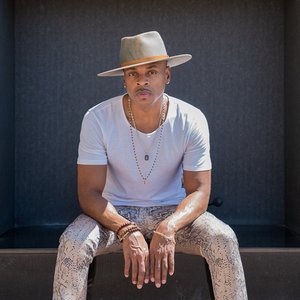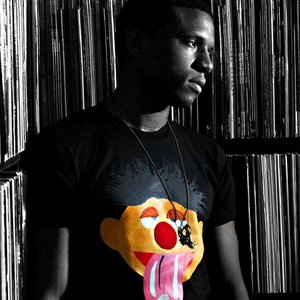Biography
Blonde-haired. Blue-eyed. Statuesque physique. Foreign pedigree. Soul singer? With the modern retro-soul revival ushering in a sea of British Ruth Browns, there might be a tricky urge to assume you already know who the singer-songwriter-producer-multi-instrumentalist known as Lylit is. Guaranteed, you would be wrong. One listen to her Kedar Entertainment Group debut, Evasion, and you‚ll know there has never been anyone quite as singularly inventive as the genre-defying, multi-hyphenated Lylit in a generation. With the neo-British invasion coming to a close, it's Lylit's turn to revolutionize the industry as visionary Kedar Massenburg's (Erykah Badu, D‚Angelo, Kem, etc.) next iconic discovery. While Lylit is European, she hails from Austria, far away from that Northern soul bastion across the English Channel. The 25 year-old musician shares the soul tradition of having honed her initial promise under a church steeple, serving as the organist and founding and directing the first gospel choir ever heard in the hills of her Austrian countryside. She was 12 at the time, already a vet on the keys, which the precocious prodigy began playing by age four. Inspired when the young musician heard gospel music for the first time, a spark was ignited and a hunger for music in the African American tradition was born. Not that such material was plentiful in the birthplace of Mozart, Beethoven, and Strauss and internationally renowned as a classical music center. Undeterred, in the absence of proper sheet music, Lylit listened and wrote down each note by ear, learning and then teaching the mysteries of blues chords and gospel rifts to her choir. Echoes later heard on the staggered harmonies and exploding tensions of future Lylit recordings. An inheritor of musical genes, her supportive blue-collar family supplied Lylit with the recordings that would anchor the genius sounds to come. Generously, they also gifted her with the essential tools to cultivate Lylit's signature musicianship. First, the piano, then the violin, then the flute, and then each mastered by the young girl's veracious appetite for music of every genre her eager ears could hear. Luckily, there were plenty of influences for the singer absorb by the time she entered formal university training in voice and piano as a teen. In a school whose studies were dedicated to classical and jazz, and whose student body blasted hip hop down the halls, Lylit continued to gravitate toward the moody and obscure: Billie Holiday, D‚Angelo, Tori Amos, Nosfell, Lauryn Hill, Lewis Taylor and Eska Mtungwazi among others. She also found kindred musicians who shared her crate-digging propensities and boundary-free approach to song, including her future co-producer and musical partner, drummer Andreas Lettner. At 17, Lylit began winning classical music competitions and touring Europe as a jazz vocalist. Soon thereafter, both Lettner and Lylit joined the 16-piece jazz, hip hop and drum n‚ bass collective, the S.K. Invitational, a post-modern big band for whom Lylit served as the lone woman and the group‚s featured vocalist. In addition to S.K. Invitational, Lylit internationally toured and recorded with jazz musician Matthias Löscher, Late Hour Entertainment, and several other jazz, hip-hop and electronica notables. With unique phrasing, dramatic tones, and an uncanny skill for riding a groove, Lylit was globally making a name for herself as a serious, if daring musician. It's here where Lylit's journey again departs from the ordinary into something extraordinary. Afraid of getting too comfortable as a touring musician for other people's projects, Lylit returned to Austria. Once home, she set out to write, record, and self-produce her first solo project, a five-song EP intended to introduce Lylit's own distinct voice to the industry. Playing many of the instruments herself, Lylit was joined by Andreas Lettner, Philipp Nykrin, Chris Neuschmid and Stephan Kondert to round out a set of boundary-free songs rooted in many African-American musical traditions from jazz to hip hop, but uniquely tweaked by Lylit's love of pop, rock, and electronica. This cauldron of sounds were sent plainly packaged, with a humble hand-penned letter, and mailed off to ten labels an industry-naïve Lylit selected after reviewing the labels of artists she admired from her iPod. This sweetly earnest move was miraculously rewarded by a call from the legendary Kedar Massenburg, the man who discovered Erykah and long-time Lylit influence, D‚Angelo. Lylit was flown to meet Massenburg in New York, where the two bonded over a shared passion for music and a vision for Lylit’s career. More shared recordings and a follow-up meeting in London quickly led to Lylit’s signing her first label deal as Kedar Entertainment‚s next wunderkind. In short order, Lylit penned and performed the Prince-flavored bonus cut, Change, on label mate Joe’s his critically-acclaimed Signature project and began crafting the Lylit solo debut. The former Eva Klampfer adopted the name Lylit as a riff off the storied Lilith, the first wife of Adam in Jewish folklore and an independent feminist unperturbed by rules and expected order. Similarly, Lylit’s music fails to follow the usual paths of a blue-eyed soul singer. No manufactured pop princess, the multi-instrumentalist writes, produces, and performs every song on her record Evasion. Concepts of neo and retro are turned upside down on songs like the prismatic Opera or the reinterpreted Œ50s backbeat of Hooked On each Evasion production consistently eschewing the predictable for the miraculous. In truth, Lylit‚s songs are as emancipated as the artist herself, thanks to support from co-producer and drummer Andreas Lettner. With few exceptions, every other instrument is 100% Lylit, from the analogue synthesizers on Change to the intricate keys on Out of Line. More than a musician, Lylit writes with an unsentimental director’s pen, specializing in metaphor rich storytelling. Unsatisfied with solitary liberation, Lylit‚s inspired lyrics on Evasion heavily mine themes of letting go. Engaged in her own emancipation from typical R&B love letter conventions, Lylit pens cinematic slice-of-life narratives not to teach, but to consider. This set of apolitical, yet thought-provoking songs about everyday people in Lylit‚s hands are raised from the mundane to lives of high art. When present, songs of love are generally of an unrequited kind or an encouraging meditation on the releasing of people, places, plans and loves once holding on to them no longer works or serves you. Revealing the first of many layers, Lylit is only just beginning her barrier-breaking walk to be seen and heard as nothing less than whom she is as a distinctive artist. One voice. One light. One sound. One Lylit.
Artist descriptions on Last.fm are editable by everyone. Feel free to contribute!
All user-contributed text on this page is available under the Creative Commons Attribution-ShareAlike License; additional terms may apply.












